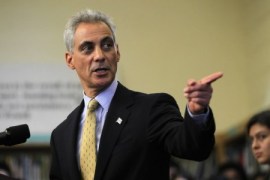The City That’s Bigger Than Pot
 I am surprised by Chicago’s strategy for fighting crime. Last week’s issue of the Chicago Reader gave details as to how decriminalization came about. Not only does legalizing marijuana help Chicago’s police shortage, but the new policy also enhances the mayor’s reputation. The city’s pot smokers,at least what to do with them, determine the success of Chicago police. Since the city has to change its relationship to stoners this reveals who the mistaken criminals are.
I am surprised by Chicago’s strategy for fighting crime. Last week’s issue of the Chicago Reader gave details as to how decriminalization came about. Not only does legalizing marijuana help Chicago’s police shortage, but the new policy also enhances the mayor’s reputation. The city’s pot smokers,at least what to do with them, determine the success of Chicago police. Since the city has to change its relationship to stoners this reveals who the mistaken criminals are.
Chicago’s situation makes me question how unserious marijuanna policies are in other cities. At a basic level, Mayor Emanuel and police chiefs have agreed that leaving smokers alone will help Chicago solve bigger problems like gun violence. A closer look, though, will see that the policy-makers know little about the life of smokers. As shown by he Reader, most of the city’s alderman don’t know about the price of weed nor about the nature of the markets’ quantities. Yet, the new policy permits officers to ticket folks with 10-15 grams. The cost of the ticket, also, matches somewhat the market price proper for the amount a smoker holds.
When I consider the lack of knowledge that the decision-makers have its seems as if sanctions against possession were originally random. It’s crazy that “2,500 police hours a day” have to be restored from processing pot violations, especially when youth violence have been on the rise since the turn of the century. Having the “marijuana crimes” explained by numbers allows the city to figure out who the joke is on. The city, the mayor, and the people have never really felt economically nor physically threatened by stoners. The “annual 20,000 marijuana arrests in Chicago” have not brought justice to the families that continue to be caught in the cross-fires.


